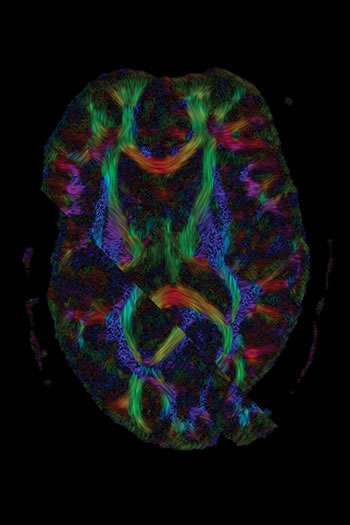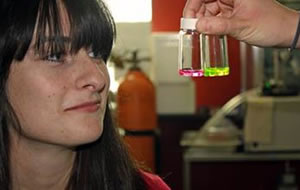Bridging Medicine & Engineering
The practice of medicine is changing, and biomedical engineers are leading the revolution. From designing and building machines and advanced devices, to improving processes for diagnosing and treating disease, they’re saving lives with emerging technologies.
Academics > Research Opportunities > Outside the Classroom > Career Paths >
Collaborative Education
An on-campus, 649-bed, acute-care teaching hospital bolsters the BS in biomedical engineering at the University of Arizona Tucson Campus. In Phoenix, the program partners with the Center for Applied NanoBioscience & Medicine. Program curriculum is heavily focused on interdisciplinary research in areas such as biomaterials, biomechanics, biosensors and microtechnologies. This degree allows students to work with renowned experts in their fields and provides excellent preparation for post-graduate work in biomedical engineering and health-related professions.

Research Opportunities
UA biomedical engineers are changing the way we practice medicine, with a focus on global emergent health issues and opportunities:
- Biomedical imaging and spectroscopy
- Bioinstrumentation and devices
- Biomaterials and tissue engineering
- Cardiovascular disease detection and treatment
- Early diagnosis and treatment of cancer
- Nanomedicine
- Neuroengineering
- Wearable biosensors

Outside the Classroom
The UA Biomedical Undergraduate Mentoring Program, in which upper-level students provide mentoring and networking opportunities with faculty and alumni, helps ensure students have the tools and resources to succeed academically and professionally. The UA Biomedical Engineering Society hosts activities that help integrate its members into the academic, medical and business sectors.

Career Paths
Modern technology is an inextricable part of medicine and healthcare. An undergraduate degree in biomedical engineering a strong foundation from which to study medicine or pursue graduate studies. It can lead to a number of exciting careers, including medical systems and device design, biomedical equipment testing and support, and clinical training, among others.
It ranks among the top 10 majors with the highest starting salaries, according to U.S. News & World Report. And Arizona’s bioscience industry is rapidly growing, with the state home to more than 1,400 companies.


